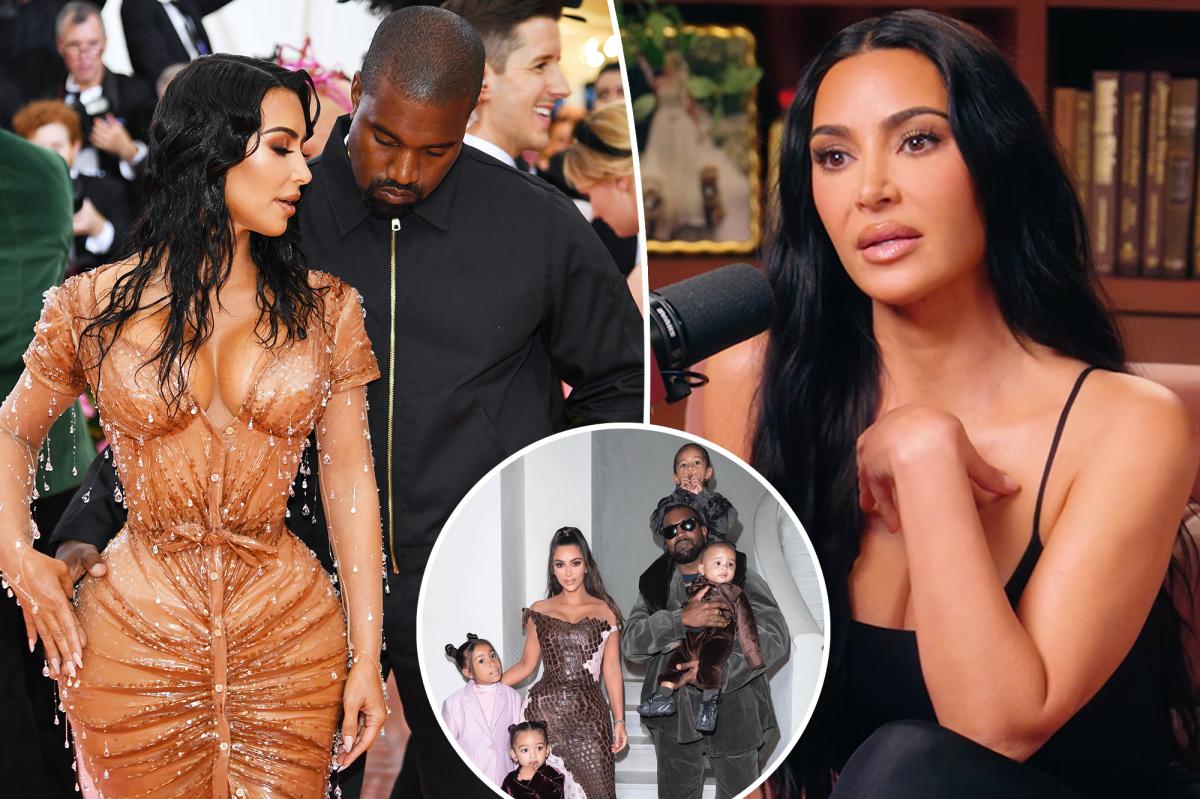CELEBRITY
Kim’s Blood-Chilling $4B Nightmare: “Kanye Made Me Feel FINANCIALLY TRAPPED—Like I Could Lose EVERYTHING Overnight!” – Expert’s Terrifying Warning: “Billionaires Aren’t Immune… This Could Strike ANYONE!”

When Kim Kardashian recently revealed that she felt “financially unsafe” while married to Kanye West, the message sent shock-waves far beyond celebrity gossip: even billions of dollars cannot prevent the sense of being vulnerable.
The Scenario: Feeling Trapped Amid Luxury
Kim disclosed on her podcast that part of what drove her to split from Kanye in 2021 was the combination of erratic spending and lack of financial security in their relationship.
One startling example: she said she would come home to see five Lamborghinis they owned—and then find they’d been given away without her knowledge.
Despite her being worth approximately $1.7 billion (according to one report) she still felt unsafe—“emotionally or even financially” in those moments.
In short: large net-worth does not equal feel-secure net-worth.
What It Really Means: Financial Intimacy and Risk
This situation raises a number of broader issues:
Financial intimacy is more than just sharing a bank account. It means having mutual trust, understanding of how money is used, and joint visibility into big financial decisions. As one expert explained: unpredictable financial behaviour can erode the sense of safety, even when money seems abundant.
Power imbalances & decision-making: When one partner makes major financial decisions without consultation, the other may feel powerless—lost control. Kim’s example of cars disappearing is a vivid metaphor.
The myth of invulnerability: Many assume that “if you’ve made it” (i.e., high income/wealth) you’re safe. Kim’s story says: wealth reduces many risks—but it doesn’t eliminate all risks, especially interpersonal and behavioural ones.
Behavioural risks: Compulsive spending, lack of oversight, hiding or giving away major assets—all these behaviours can threaten any partnership, regardless of size of the “pie”.
Lessons & Warnings: Could This Happen to Anyone?
Yes. And here are the danger signs and protective moves:
⚠️ Danger signs
One partner hides major purchases or gives things away without joint agreement.
There’s refusal or avoidance of discussions around finances: budgets, future plans, assets.
The relationship has high assets, but low transparency about how money moves.
You feel worried, unsettled, “unsafe” financially—even if in the abstract you are doing okay.
✅ Protective strategies
Maintain some account or asset in your control: an emergency fund you control.
Insist on open dialogue about major financial decisions—assets, giving away resources, investments.
Keep records: know what you own jointly, what you own separately, who makes what decisions.
Understand your partner’s money “story”: their habits, triggers, fears around money (this builds financial intimacy).
Remember: Security is not just about how much you earn or have—it’s about how stable and trusted the system around you is.
Why This Matters—Especially In Our Context
You may wonder: “What does Kim’s story have to do with me in Ibadan or Nigeria?” The answer: everything. Because although the scale is different, the dynamic is the same.
Whether you’re a couple dealing with modest incomes or are building significant assets, if one person’s behaviour around money is erratic or hidden, the risk is real.
In many societies (including ours), finances in relationships can be tangled with tradition, power dynamics, gender roles, etc. The idea of feeling financially unsafe can come even with relatively “small” sums.
This story encourages vigilance: don’t assume “because we have plenty” means we’re safe; don’t assume “because we love each other” means we address money well.
Final Thoughts
Kim Kardashian’s statement—that she felt financially trapped, like she could lose everything overnight—should be heard as more than celebrity drama. It’s a warning. It says: financial risk doesn’t only come from market crashes or losing a job—it can come from within the relationship, from misalignment, secrecy, unpredictability.
If anything, the bigger the assets, the higher the stakes. Because when there’s more to lose, and more layers of complexity, the danger of mis-alignment grows. But anyone can fall into this trap.
So: be proactive. Build financial trust. Ask hard questions. And above all, protect you.
























